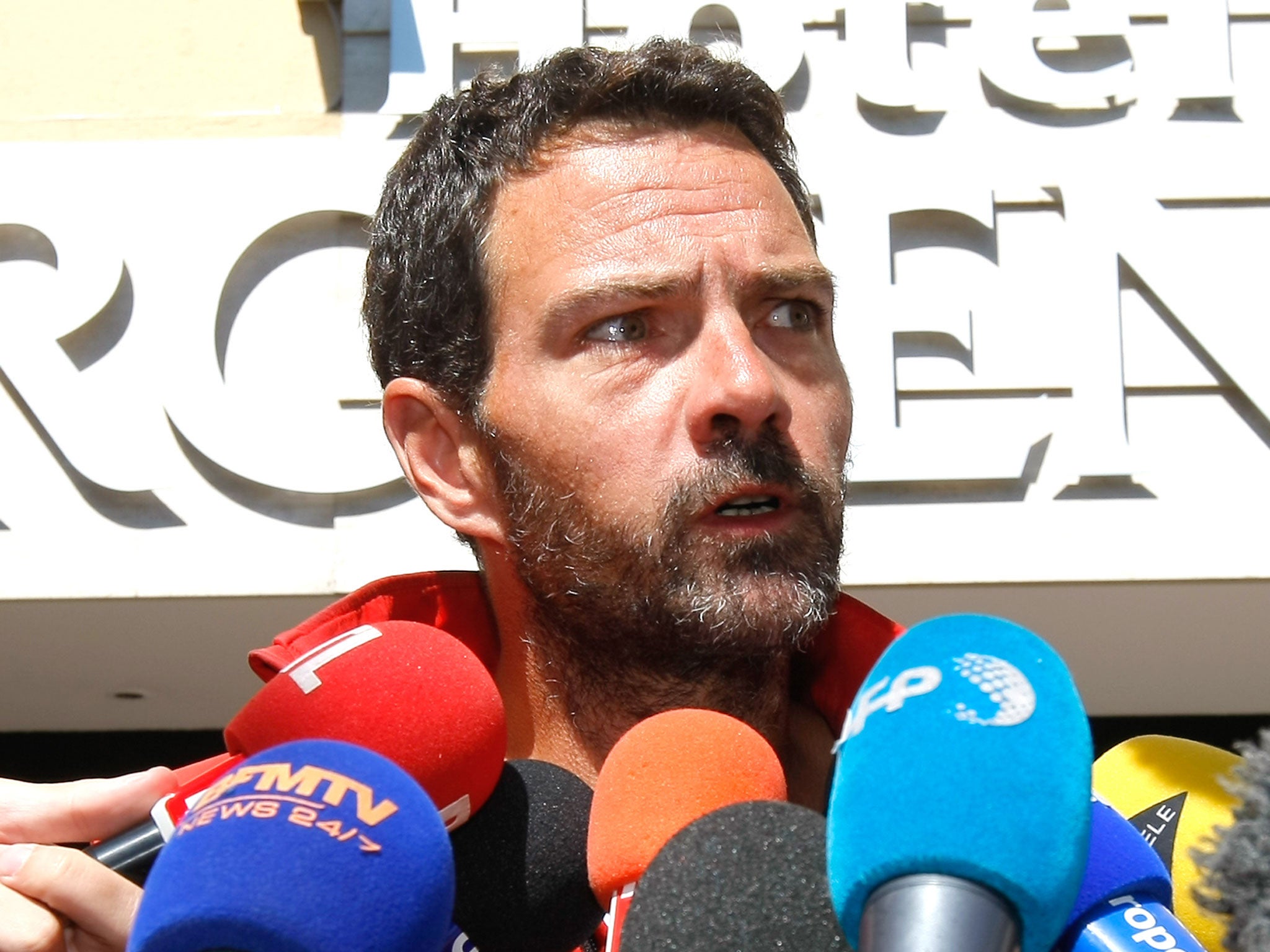Rogue trader Jérôme Kerviel 'to surrender' to French police after protest march through Italy

Your support helps us to tell the story
From reproductive rights to climate change to Big Tech, The Independent is on the ground when the story is developing. Whether it's investigating the financials of Elon Musk's pro-Trump PAC or producing our latest documentary, 'The A Word', which shines a light on the American women fighting for reproductive rights, we know how important it is to parse out the facts from the messaging.
At such a critical moment in US history, we need reporters on the ground. Your donation allows us to keep sending journalists to speak to both sides of the story.
The Independent is trusted by Americans across the entire political spectrum. And unlike many other quality news outlets, we choose not to lock Americans out of our reporting and analysis with paywalls. We believe quality journalism should be available to everyone, paid for by those who can afford it.
Your support makes all the difference.Jérôme Kerviel, the most spectacular rogue trader in financial history, appeared to have resigned himself to a French prison term on Sunday night after keeping the world’s media guessing throughout the weekend.
Kerviel, 36, was due to surrender himself to the French authorities to start a three-year prison sentence after walking hundreds of miles through Italy in a “march against the markets”.
At a series of press briefings in Ventimiglia a few yards from the French border, he announced he would defy France and stay in Italy. He said wanted a meeting with President François Hollande to explain why his trial and two appeals had been “unfairly” loaded against him.
Finally, on Sunday night, five hours before his deadline for surrendering to the French authorities to start his sentence for breach of trust and forgery, he announced he had changed his mind. “I am going to France, he said.
At public appearances over the last two days, Kerviel was surrounded by cameras and supporters. The one-time symbol of capitalist excess has sold himself to part of the French left in recent months as a working-man’s hero and victim of high finance. After one press conference on Saturday, a young woman sang the Communist anthem, “The Internationale”.
“I am staying here for now, waiting for the President to respond,” Kerviel said on Sunday. There was no question of asking for a pardon, he said.
He wanted Mr Hollande to examine his claim that potential witnesses in his favour had been bribed or intimidated.
“Asking for a pardon is to admit that you’re guilty… I’m not guilty. And I will never get down on my knees before such an unfair judgment,” he said.
The French President’s office said if Kerviel asked for presidential grace, his request would be examined according to usual procedures.
After losing a final appeal in March, Kerviel sought an audience with Pope Francis. He has since been zig-zagging through Italy on foot in a one-man protest against the tyranny of markets. The French justice ministry said that if Kerviel did not return he would be officially regarded from today as “on the run”. A European arrest warrant would be sought to bring him back to France.
Speaking to reporters, Kerviel called for President Hollande to give immunity to the unnamed witnesses he said would be willing to testify in his favour.
Kerviel’s lawyer, David Koubbi, said he would be returning to Paris later in the day in the hope of meeting the President. The “affaire Kerviel” exploded in early 2008, at the beginning of the global financial crisis.
Kerviel, a relatively junior trader, was found to have made vast, one-way trades on the direction of European stock markets. He was supposed to make simultaneous “bets” on stock-exchange futures going up and down to earn modest amounts of money on tiny margins between the two. Instead, he “faked” covering trades and hacked into computers to disarm the bank’s safeguards.
For almost two years, Kerviel made large gains. In early 2008, the extent of his colossal exposure was discovered and Société Générale unscrambled his positions, reporting a total loss of €4.9bn (£3.9bn).
At his trial in 2010, and at two appeal hearings Kerviel’s lawyers admitted he had “lost all sense of reality”. They called a string of witnesses who said he was a “victim” of a “greedy” financial system which had lost touch with reality.
While Kerviel was winning, they argued, the bank tacitly approved his dealings. When he got into trouble, he was made a scapegoat for the bank’s wider losses.
In a statement, a Société Générale spokesman criticised the media hype around Kerviel, stressing he had been subject to a meticulous investigation, judged three times and found guilty each time.
Join our commenting forum
Join thought-provoking conversations, follow other Independent readers and see their replies
Comments